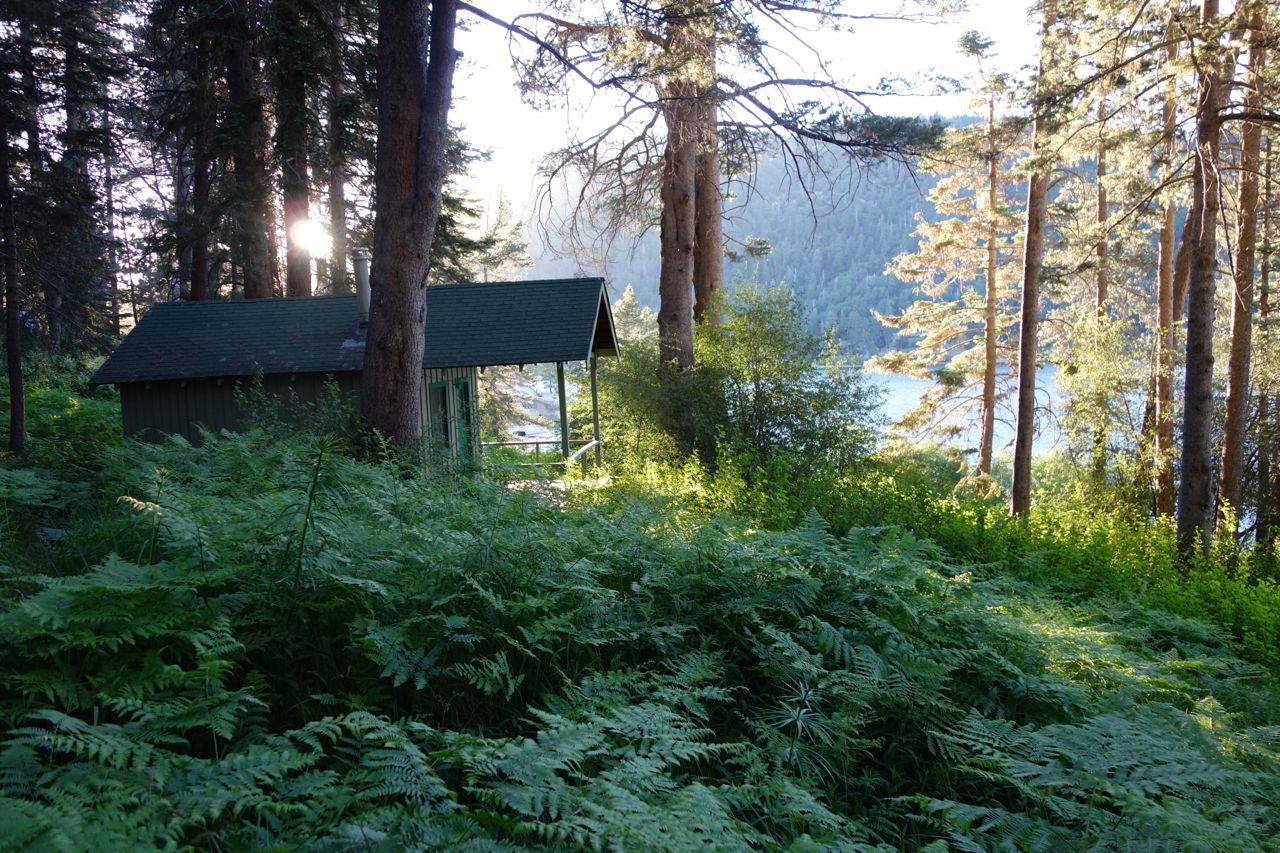 On Friday my "snail mail" arrived from the post office with a "Correction" letter from the Forest Service regarding my earlier 2013 Permit Fee computation. The good news is that my 2013 fees were reduced from the original billing amount. The bad news is that the "Correction" letter may raise questions among all owners about whether their original Forest Service bills are correct.
On Friday my "snail mail" arrived from the post office with a "Correction" letter from the Forest Service regarding my earlier 2013 Permit Fee computation. The good news is that my 2013 fees were reduced from the original billing amount. The bad news is that the "Correction" letter may raise questions among all owners about whether their original Forest Service bills are correct.
The correction to my bill was caused by the fee phase-in requirements of CUFFA (Cabin Users Fee Fairness Act). As you may recall, CUFFA continues to control our annual permit fee calculation until the new Cabin Fee Act (CFA) can be enacted. For 2012-2014 the phase-in rules only apply to Category 3 lots, which were the only lots with a large increase in the 2008 appraised value over the 1998 appraisal. The appraisal values for Category 1 and 2 lots were very similar in 2008 compared to 1998, so if you have a Category 1 or 2 lot, the CUFFA phase-in rules do not impact your 2013 billing calculation, and you probably did not (and will not) receive a correction notice.
Let me address the issue of the 2013 billing computation, so that everyone can check their own invoices to verify that the amounts are correct.
Note: The following calculation description has been modified slightly from my original June 22 post in order to clarify the effect of the CUFFA phase-in rules.
Because the Cabin Fee Act still has not been passed by the House and Senate, the old CUFFA rules continue to control the annual cabin fee computation. Last year the base annual permit fee for 2012 (the initial year) was equal to 5% of the 2008 appraised value. Each owner paid the following amount in 2012 unless the CUFFA phase-in rules applied. The 2008 appraised value and 2012 initial base fee for each lot category are as follows:
- Category 1: Appraised Value - $ 125,000 2012 Base Permit Fee - $6,250
- Category 2: Appraised Value - $ 50,000 2012 Base Permit Fee - $2,500
- Category 3: Appraised Value - $ 32,000 2012 Base Permit Fee - $1,600
However, for Category 3 lots the CUFFA phase-in rules did apply in 2012, which is why Category 3 owners actually paid less than the $1,600 initial fee that was based on 5% of the 2008 appraisal. The phase-in rules were designed to insure that a cabin owner did not have a huge fee increase in a single year. For that reason, in 2012 most Category 3 owners probably only paid between $1,150 and $1,200, depending on what they actually paid in 2011. (I know it seems complicated, but stick with me here. :)
Let's move on to the 2013 computation. Since Category 1 and 2 are not subject to the phase-in rule, their 2013 permit fees are simply equal to the prior year's actual annual fee, increased by inflation factor "IPD", as shown on your invoice. The computations are as follows:
Category 2012 Fee IPD 2013 Fee
Category 1 $6,250.00 x 1.017 = $6,356.25
Category 2 $2,500.00 x 1.017 = $2,542.50
If you have a Category 1 or 2 lot, your 2013 fees should correspond to the amounts above.
For Category 3, under the phase-in rules, the total 2012 fee increase is phased in over a 3-year period. In 2013, Category 3 lots are in the second year of the 3-year phase-in process. I suggest that you take your 2013 Permit Fee invoice and do the following calculations ASAP, just to be sure the Forest Service got it right on your bill. Here's what you need to do.
Assume for this computation that your actual fee paid for 2012 was $1,200. (Note: When you do your own fee computation, use the actual fee that you paid in 2012.) Using a $1,200 fee amount for 2012, here are the steps to calculate the correct 2013 billing amount:
- Subtract last year's (2012) Permit Fee from the base permit fee shown above for your Lot Category. (Category 3: $1,600 - $1,200 = $400)
- Divide that difference by 2. (e.g., $400 / 2 = $200)
- Add the result to the rent paid in 2012. (e.g., $200 + $1,200 = $1,400)
- Multiply that sum by the 2013 IPD of 1.017. (e.g. $1,400 x 1.017 = $1,423.80)
- The result is your 2013 Permit Fee, based on the CUFFA phase-in rules. (e.g., $1,423.80). This should be the amount shown on your invoice.
The Forest Service tried to explain this computation on my Correction Notice, but did not do a very clear job. They also inadvertently used some incorrect sample amounts, which made their explanation totally confusing. If you follow the example shown above and substitute your own amounts, you should arrive at the correct result, which hopefully will match the Forest Service bill.
The payment due date is 30 days after the billing date. If you get a correction notice, the due date is 30 days after the correction notice date. For most of us our payment will be due sometime in mid-July. Please make your payment in a timely manner. If you have questions about your invoice, you should contact the San Bernardino National Forest Billing Representative, David Cruz (phone: 909-382-2623; fax: 909-383-5767; email: davidcruz@fs.fed.us). He has been very helpful in resolving individual owner issues. Please resolve your questions and issues promptly.




